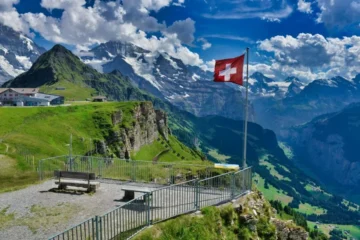Hungary, as an EU member state with an evolving immigration framework, offers several employment-based routes that can lead to long-term residence for third-country nationals. The system blends national permits with EU-level instruments, which means skilled workers may qualify via an EU Blue Card, a national Hungarian Card, or standard residence permits for employment, and in some cases qualify for long-term or permanent residence after meeting residence and other conditions. The precise route depends on the type of employment, the worker’s qualifications, and how long they live and work in Hungary.
Key Takeaways
Work permits and residence options that matter
Hungary issues a few distinct employment-related residence permits that foreign workers commonly use. Key options are:
• A residence permit for employment, sometimes issued as a single permit that combines work authorization and residence. This is the standard route for foreign employees who have a Hungarian job offer and an employer willing to sponsor.
Also Read: How to Get Permanent Residency in Hungary
• The EU Blue Card, designed for highly qualified workers with a binding job offer that meets minimum salary and qualification thresholds. The Blue Card is an EU instrument that many Member States, including Hungary, implement; it grants rights to live and work in the member state and can shorten the route to long-term EU residence for qualifying holders.
• The Hungarian Card, a national scheme for certain highly qualified persons, such as those with specified professional qualifications, specialized cultural or sports professionals, and filmmakers. It functions like a highly skilled permit tailored to Hungary.
Seasonal work permits and specific short-term schemes exist as well, but these rarely, if ever, lead directly to permanent residence because they are explicitly temporary by design.
Who is eligible for an employment-based permit
Eligibility depends on the permit type. For standard employment permits, applicants generally need a genuine job offer from a Hungarian employer, the employer’s compliance with labour market checks where required, and evidence that the candidate has the qualifications and experience for the post. For the EU Blue Card, additional conditions apply, such as a higher education qualification, a contract of employment of a certain minimum duration, and meeting the salary threshold set for the Blue Card in Hungary. For the Hungarian Card, there are specific lists of acceptable professions and qualification criteria.
Applicants must also meet standard immigration requirements such as health checks, a clean criminal record, and valid travel documents. Many applications are now submitted via the EnterHungary electronic system.
How a work permit can lead to permanent or long-term residence
There are two distinct concepts to keep clear. One is a national permanent residence permit or National Residence Card; another is an EU long-term residence (an EC Permanent Residence card) that confers broader EU-level rights. The pathways and timing differ.

• National permanent residence options have recently been updated under Hungarian law and commonly require a several-year qualifying period of continuous legal residence in Hungary. Some sources and official guidance indicate that third-country nationals may apply for permanent residence after about three years of continuous lawful residence under certain conditions; exceptions and faster routes exist for family members, spouses, and specific categories.
• EU long-term resident (EC Permanent Residence) status typically requires longer continuous residence in the EU and is governed by EU rules transposed into national law. In practice, some routes, notably for EU Blue Card holders, can shorten the time to obtain long-term status: EU Blue Card holders who accumulate the required period of lawful residence in the EU may be eligible sooner under EU rules, depending on prior residence in other Member States.
In short, workers who arrive on a standard employment permit often need several years of continuous, lawful residence plus clean records and proof of stable ties to Hungary before applying for a permanent residence card; highly qualified workers on an EU Blue Card or holders of special national permits may have faster or more predictable routes.
Typical application steps and authorities
The usual sequence for someone aiming to convert work-based residence into permanent status is:
- Enter Hungary on the appropriate visa or obtain a residence permit for employment, using a Hungarian employer sponsorship where required. Many processes now begin through EnterHungary.
- Maintain continuous lawful residence and meet the specific requirements tied to the permit (for example, continued employment in the same or equivalent qualified role).
- When eligible, submit the permanent residence application to the relevant regional directorate under the Office of Immigration and Nationality or use the national channels described by the authorities. Official processing times for certain permanent residence card procedures are indicated as within 70 days for specific family-related cards, but overall timelines vary by case complexity.
Also Read: How Hard Is Hungary’s Cultural Knowledge Exam for Permanent Residency?
Timeframes and realistic expectations
Timeframes depend on the route and on the applicant’s circumstances. Many guides and official notes suggest that a general qualifying period of several years of continuous legal residence is required to apply for permanent residence.
For example, some sources reference a three-year benchmark for certain permanent residence permits, while EU Blue Card holders may qualify faster under EU regulations if they meet prior EU residence requirements. Processing itself often runs from a few months to longer, depending on checks and case complexity. Always check the latest guidance from the Office of Immigration and Nationality or the EnterHungary portal before planning.
Common pitfalls and challenges
Applicants commonly make mistakes such as assuming any work permit will automatically convert to permanent status, underestimating continuous residence requirements, or failing to maintain a valid residence while switching employers or permit types.
Policy changes in recent years mean occupation lists and permit rules can shift; reliance on third-party advice without checking official sources can cause delays. Those from countries with high demand for certain permit types should also expect scrutiny of criminal, security, and public health checks.
Benefits of obtaining permanent residence via employment
Permanent residence in Hungary offers stability to live and work without repeated renewals, the ability to bring and sponsor family members under family reunification rules, and eligibility for longer-term identity documents and rights within Hungary. For some holders of EU-status permits, long-term residence can also improve mobility within the EU under specific conditions. These benefits make the multi-year effort of transitioning from a work permit to permanent status a sensible objective for many skilled workers.
Conclusion
Yes, it is possible to obtain permanent residence in Hungary after arriving on a work permit, but the path depends heavily on the exact permit held, the applicant’s qualifications, and how long they lawfully and continuously reside in Hungary. Highly qualified workers have clearer and sometimes faster routes through the EU Blue Card or the Hungarian Card.
Others on standard employment permits must plan for several years of lawful residence, careful paperwork, and compliance with Hungarian immigration rules. Before making decisions, prospective migrants should consult official sources such as the Office of Immigration and Nationality and the EnterHungary portal, and consider getting professional immigration advice tailored to their specific circumstances.





